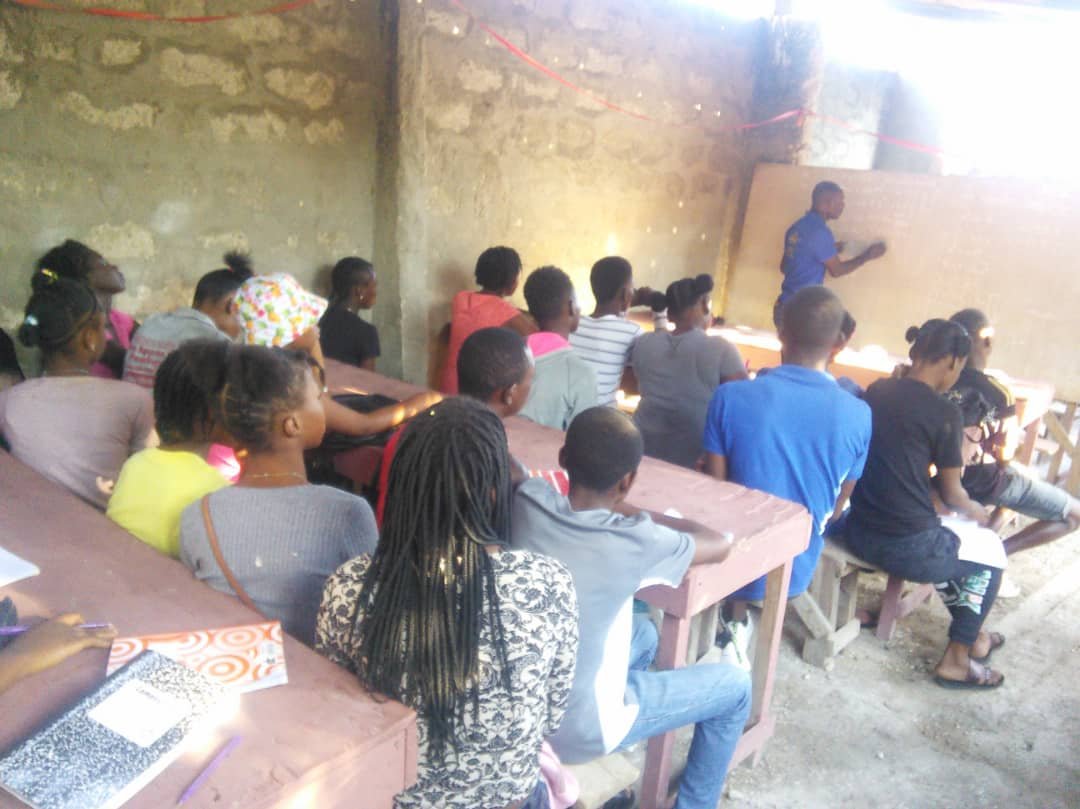Part 4: Let's Build a School - But Why?
“Teaching is the greatest act of optimism.” – Colleen Wilcox
Why? The question we get asked the most regarding Haiti is why. Why are the people so poor? Why is the literacy rate so low? Why is it the way that it is?
Let’s talk about the education system for a moment.
Haiti is the first free black republic. In 1804, slaves who had been held captive on the island for 200 years won a war against the French and gained (sort of) freedom. The new country consisted of millions who could not read or write or even speak French or English and had never known a life of independence. America and most European nations still relied on slavery and embargoed the new nation, excluding Haiti from all trade routes. Without international recognition, the ex-slaves essentially became an indentured servant of France, paying the equivalent of billions in reparations for “the cost of goods” of the freed people. The populace was totally reliant on French religious educators to establish an education system. That education system was designed to keep the people in submission. It was intended from the very beginning to keep them ignorant. Only the select top few students would truly receive an education….at the expense of their family, their home and their culture.
Nothing has changed. Haitian students still study the same material they studied 200 years ago.
A system intended to keep a nation submissive, to instigate the failure of the republic worked exactly as it was supposed to. Haiti is a failed state at least partly due to the systemic oppression of a colonial education system.
The most recent literacy data from UNESCO is from 2015 and shows a literacy rate of 65.3% for men and 58% for women. This was a slight improvement from previous data, but the numbers are expected to be much worse after the last 4 years of conflict. For reference, the literacy rate of the United States is 99% for both male and female. Dominican Republic, on the same island as Haiti, has a 92.7% literacy rate. Guatemala, the second worst in the western hemisphere, is 79%. Only a few countries in Sub-Saharan Africa and Afghanistan rank lower than Haiti.
"Illiteracy weakens communities and undermines democratic processes through marginalization and exclusion. These and other impacts can combine to destabilize societies." — Ban Ki-moon, former UN Secretary-General
The UN considers literacy to be a fundamental human right. The reason is because literacy is so closely tied to poverty and quality of life – even life expectancy. According to the World Literacy Foundation, illiteracy costs the global economy $1.5 trillion annually. By preventing people from achieving a liveable wage, they are forced to depend on charity.
There is no free public education in Haiti. For secondary school, the cost of tuition can be as high as 80% of the household income.
Today in rural Haiti, like Verrettes, less than 2% of girls will graduate from high school. If a girl becomes pregnant, she is forced to leave school, no matter the circumstances. Families are most often forced to choose one or two of their children to send to school, and they will choose the boys.
But this year….they had to choose food instead.
Can you imagine that choice? I can either feed my child today…. or teach them to read so hopefully they can feed themselves one day….
That’s not a real choice. And it has to change.
“I am not a teacher, but an awakener” – Robert Frost
Lespwa Lavi was honored to have over 50 of the most highly qualified teachers in the region apply to our new academy. We have hired 14 so far. These professionals want the system to change. They see the brokenness and desire an opportunity to use their skills to revolutionize it.
What kind of people become teachers in Haiti today?
“I became a teacher to build responsible citizens. I have my child in [Lespwa Lavi]. I know this organization is a vehicle for the community” - Elementary Educator
“Education is the key to success. Teachers need to be part of the work. We are willing to work for our community. I saw the way Lespwa Lavi operates and I want to be a part of it.” - Elementary Educator
“I chose to teach because of the situation in Haiti. I saw there were kids who could not attend school.” - Elementary Educator
“I like to help my people. I want to come back [to the country] and make an impact. I want to help change the education system.” - Secondary Educator & Principal
Here’s a few things that will make Lespwa Lavi Academy different from day 1:
1. Teacher empowerment & new curriculum meeting international standards
2. Girls have equal value and a right to learn, including during and after pregnancy
3. No corporal punishment
4. No student turned away for financial reasons, ever
Are you ready?
“One child, one teacher, one book, and one pen can change the world” – Malala Yousafzai
The conclusion of the story is coming out tomorrow, and we can’t wait for you to see it!




